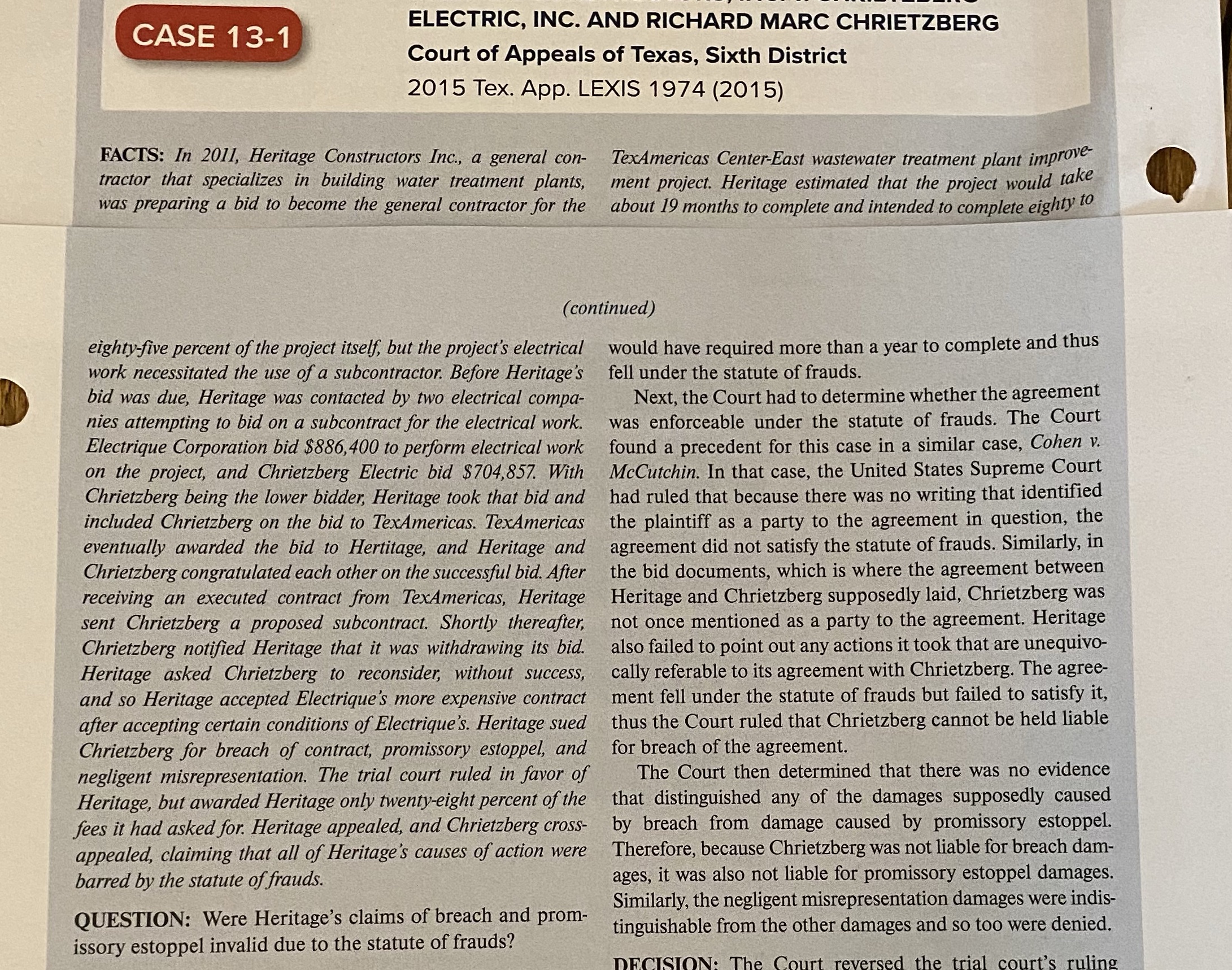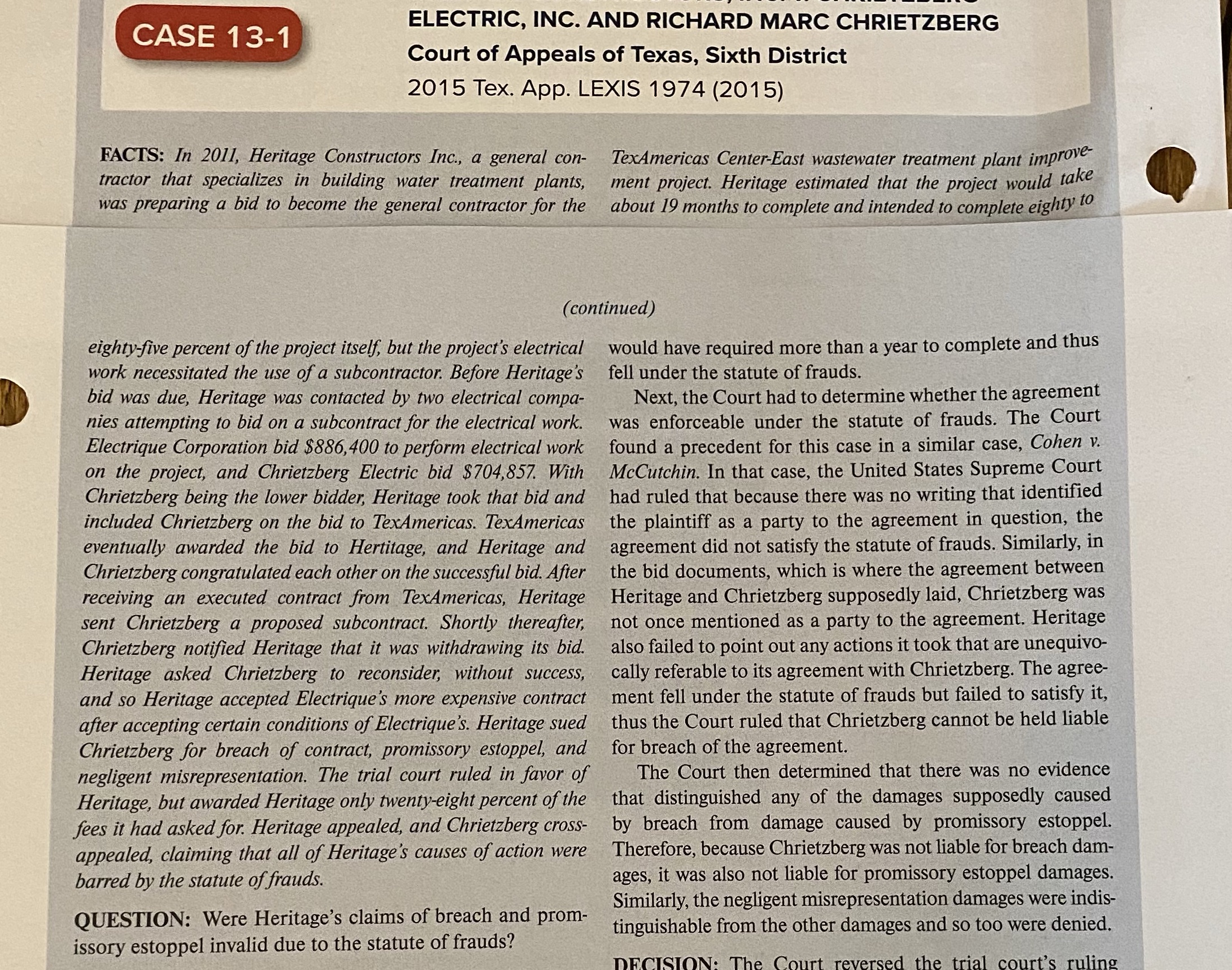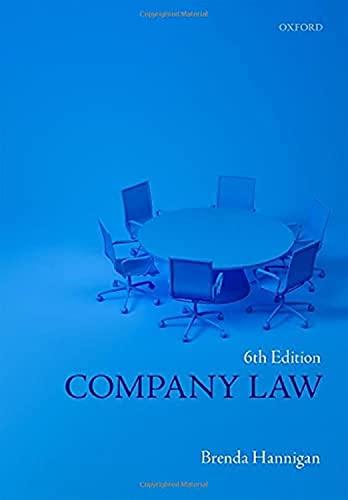
Notice at the court relied on an analogy in coming to a decision that the writing was insufficient. Is the analogy of strong? Yes or no and why? Is there any other argument that the heritage might have made 13 compensation in this case? What values are in hand by this decision? Well values were given less weight by the judges in the decision?
CASE 13-1 ELECTRIC, INC. AND RICHARD MARC CHRIETZBERG Court of Appeals of Texas, Sixth District 2015 Tex. App. LEXIS 1974 (2015) FACTS: In 2011, Heritage Constructors Inc., a general con- TexAmericas Center-East wastewater treatment plant improve- tractor that specializes in building water treatment plants, ment project. Heritage estimated that the project would take was preparing a bid to become the general contractor for the about 19 months to complete and intended to complete eighty to (continued) eighty-five percent of the project itself, but the project's electrical would have required more than a year to complete and thus work necessitated the use of a subcontractor. Before Heritage's fell under the statute of frauds. bid was due, Heritage was contacted by two electrical compa- Next, the Court had to determine whether the agreement nies attempting to bid on a subcontract for the electrical work. was enforceable under the statute of frauds. The Court Electrique Corporation bid $886,400 to perform electrical work found a precedent for this case in a similar case, Cohen v. on the project, and Chrietzberg Electric bid $704,857. With McCutchin. In that case, the United States Supreme Court Chrietzberg being the lower bidder, Heritage took that bid and had ruled that because there was no writing that identified included Chrietzberg on the bid to TexAmericas. TexAmericas the plaintiff as a party to the agreement in question, the eventually awarded the bid to Hertitage, and Heritage and agreement did not satisfy the statute of frauds. Similarly, in Chrietzberg congratulated each other on the successful bid. After the bid documents, which is where the agreement between receiving an executed contract from TexAmericas, Heritage Heritage and Chrietzberg supposedly laid, Chrietzberg was sent Chrietzberg a proposed subcontract. Shortly thereafter, not once mentioned as a party to the agreement. Heritage Chrietzberg notified Heritage that it was withdrawing its bid. also failed to point out any actions it took that are unequivo Heritage asked Chrietzberg to reconsider, without success, cally referable to its agreement with Chrietzberg. The agree- and so Heritage accepted Electrique's more expensive contract ment fell under the statute of frauds but failed to satisfy it, after accepting certain conditions of Electrique's. Heritage sued thus the Court ruled that Chrietzberg cannot be held liable Chrietzberg for breach of contract, promissory estoppel, and for breach of the agreement. negligent misrepresentation. The trial court ruled in favor of The Court then determined that there was no evidence Heritage, but awarded Heritage only twenty-eight percent of the that distinguished any of the damages supposedly caused fees it had asked for. Heritage appealed, and Chrietzberg cross- by breach from damage caused by promissory estoppel. appealed, claiming that all of Heritage's causes of action were Therefore, because Chrietzberg was not liable for breach dam- barred by the statute of frauds. ages, it was also not liable for promissory estoppel damages. QUESTION: Were Heritage's claims of breach and prom- Similarly, the negligent misrepresentation damages were indis- tinguishable from the other damages and so too were denied. issory estoppel invalid due to the statute of frauds? DECISION: The ( ng








